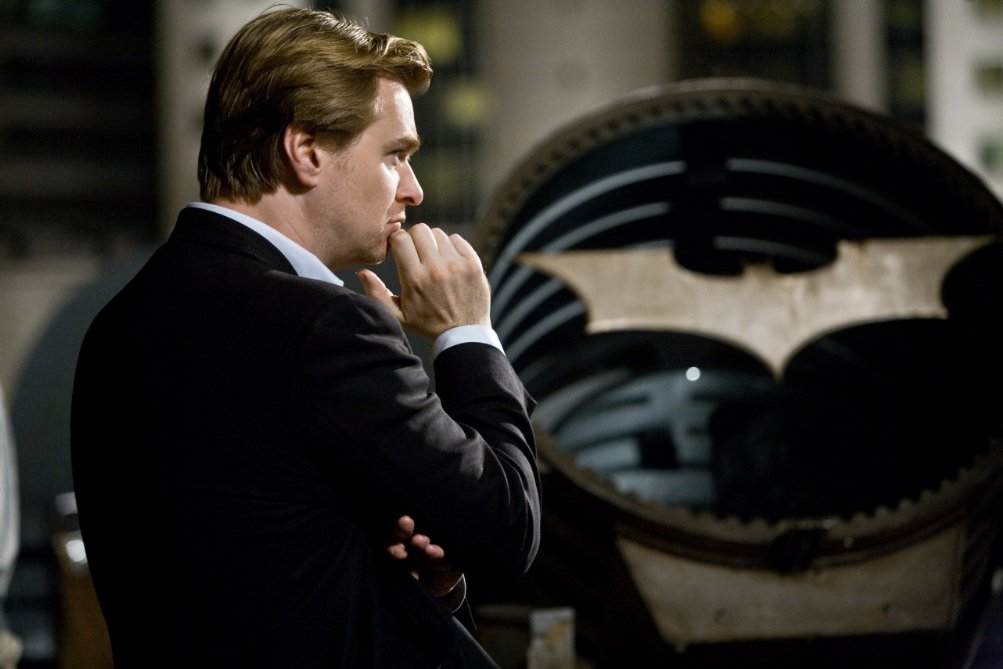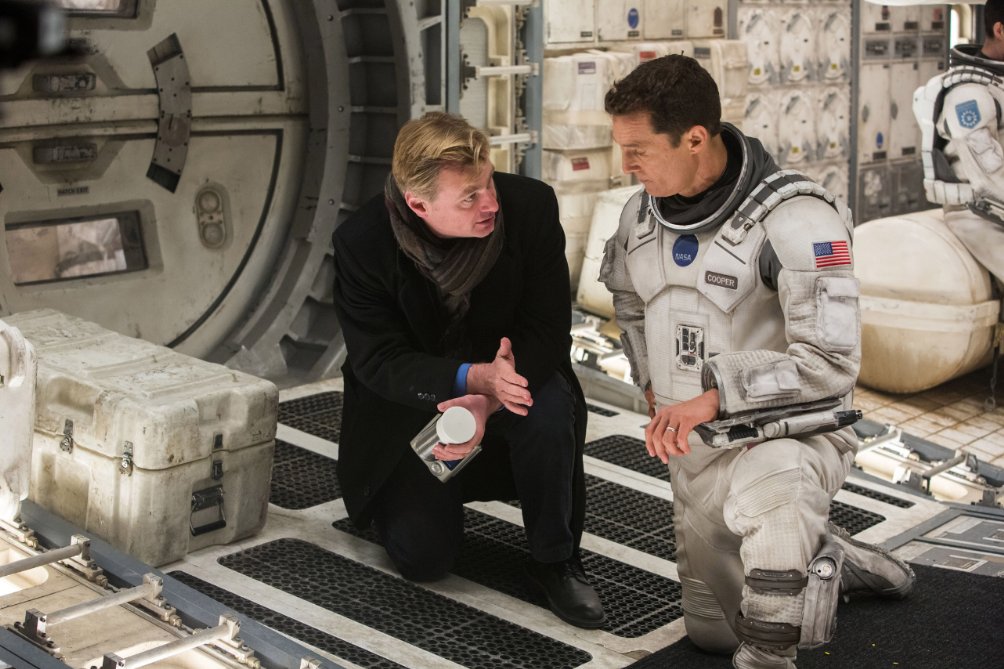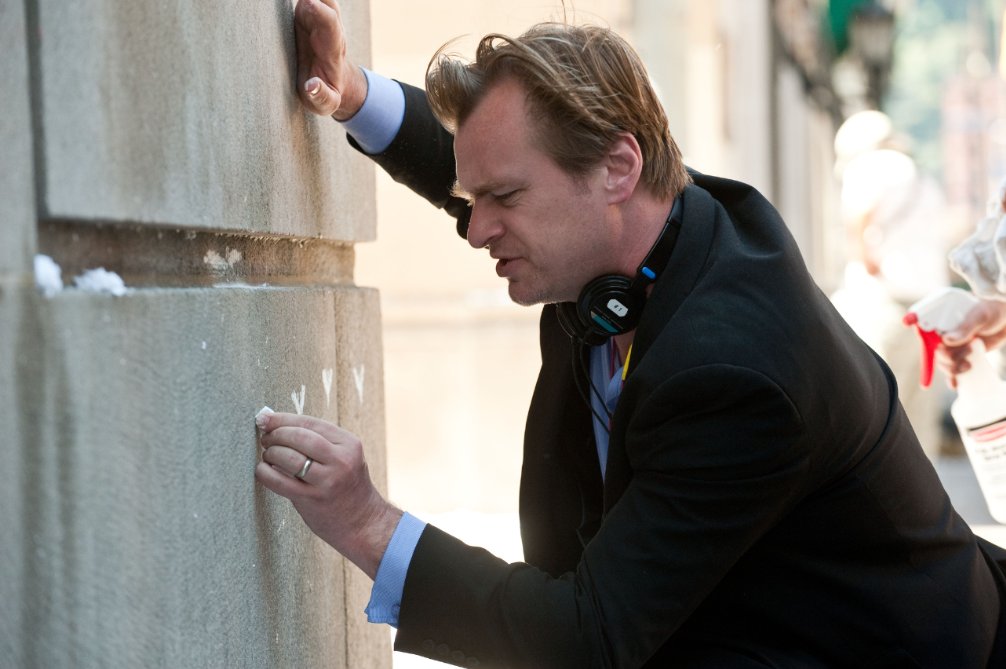If Christopher Nolan is not the most popular, talented, influential or even interesting director working today, then he is certainly the most important.
The release of a Christopher Nolan movie, even one that “underperforms” at the box office like this week’s Interstellar, is by far the most fervently talked about work of art for several news cycles. Even in the face of constant barrages of Taylor Swift headlines, Nolan’s work is intensely debated and scrutinized in a way no other filmmaker receives for even one film, let alone all of them.
In fact, the wild, ranting, nitpick-y plot hole posts that were previously confined to IMDb message boards have this week migrated to real entertainment news sites. This one found 21 things that didn’t make sense about Interstellar, this one made objections to the science and plot on the whole, and this one found only 13. For whatever reason, the Internet cannot just let this movie lie; it has to prove everyone else wrong that Interstellar is not great, even if a lot already seem to think so.
Is this level of scrutiny unusual? You bet, and even Nolan knows it. “My films are always held to a weirdly high standard for those issues that isn’t applied to everybody else’s films—which I’m fine with,” Nolan said to The Daily Beast. “People are always accusing my films of having plot holes, and I’m very aware of the plot holes in my films and very aware of when people spot them, but they generally don’t.”
It doesn’t stop at plot holes though. Rarely is someone as critically acclaimed as Nolan also this polarizing, with a small but sizable group of critics raising some strong red flags. “Many critics fiercely dislike his work. They regard it as intellectually shallow, dramatically clumsy, and technically inept,” wrote David Bordwell in an essay following the release of The Dark Knight Rises. “People who shrug at continuity errors and patchy plots in ordinary productions have dwelt on them in Nolan’s movies. The attack is probably a response to his elevated reputation. Having been raised so high, he has farther to fall.”
But why this guy? His movies are very accomplished and popular, but many directors can claim resumes nearly as good. At first it seemed like the vitriol was in response to an even louder group of ravenous fanboys, but even other cultish directors like Zack Snyder, the Wachowskis and Joss Whedon have not earned the vaulted status Nolan has. Did he become king of the fanboys because of one great Batman movie, or is there something else to his work that makes Nolan so fun to pick apart?
Nolan’s films are innovative in the way they tell stories, not necessarily the stories themselves
One of Nolan’s primary innovations as a filmmaker is his focus on structure. Inception, Interstellar, and Memento are the most notable examples of the director weaving a narrative between crossing timelines and even planes of being, but even The Prestige and Following take place across multiple timelines. Ever since The Birth of a Nation, action directors have intercut action occurring in multiple locations, but Nolan has taken it to a new level in his narrative structure, introducing numerous plotlines, characters and events in gripping action sequences in a way that doesn’t lose the audience.
Bordwell calls it “comprehensive complexity.” “How do you build more elaborate structures and still not lose your audience? How do you design a labyrinth that contains enough linkages to guide your viewer toward a unified experience? This is a problem that confronts any filmmaker who tries for ambitious storytelling within the tradition of mainstream American cinema. So if one of your criteria for a good film is adventurous novelty, then there is a case to be made for Nolan.”
Nolan’s films are built in a way that you feel as though your mind has been blown, and yet you know exactly where you are and what you’ve seen. You can call attention to the lapses in logic because everything else has been so neatly organized, and his films are popular because they fit smoothly into the mainstream. You could make the argument that something like Memento or Inception are the most digestible “mind-fuck” movies ever made. They share little in common with the surreal work of David Lynch, Stanley Kubrick and others, and yet they carry that same weight.
A.O. Scott writes in his review of Interstellar that Nolan “does not so much transcend genre conventions as fulfill them with the zeal of a true believer.” Interstellar doesn’t break sci-fi boundaries so much as revert to their basest themes, championing ideas of exploration, discovery and love. For Batman Begins, Nolan didn’t reinvent the superhero genre but simply turned it into neo-noir. And he makes Inception palatable because for all its fantasy, it’s actually just a heist film.
But again, many other directors from Spielberg to Ben Affleck have played firmly within genre conventions to make films that feel innovative and imaginative, but only the CIA is weighing in on everything Argo gets wrong.
Nolan’s cold and sterile approach to characters and storytelling invites analysis and scrutiny
Dating back to his first feature film Following, Nolan’s films have been obsessed with rules. Don’t follow women into dark alleys at night, never follow the same person twice, and don’t follow anyone who’s not random. Those are Bill’s rules in Following. In The Prestige, Michael Caine, long Nolan’s medium for explaining what’s what, lays out the rules like this: show the audience something ordinary, which it probably isn’t, take the ordinary thing and make it do something extraordinary, but don’t clap yet, because you have to bring it back. And Inception is all rules. Time in one dream level is exponentially relative to the one above it. Change too many things and the dreamer will know they’re dreaming. And so on.
But one thing that’s often missing from Nolan’s films is a sense of morality. Only recently in Interstellar have Nolan’s characters behaved with a conscience, with Coop exploring distant galaxies because he wishes to save his family and mankind. He makes decisions because he knows he’s leaving Murph behind. In any of his other films, the characters are driven by their set of rules and the singular philosophy those rules dictate. The Joker creates anarchy based on his beliefs about human behavior, not on any sort of tormented past or character motivation. The magicians in The Prestige are only driven by the desire to break the rules and discover the other’s trick. Lenny in Memento is driven by revenge, but he acts solely on what his own notes tell him.
In other films we forgive lapses in plot because we understand the characters’ motivations and can empathize. Nolan’s characters behave differently, and the only thing between the audience and the story are Nolan’s rules. Find the cracks in the rules and you break the story. It’s why so many have been complaining about the Blight at the start of Interstellar. While the science and the wormholes are mostly air tight, the absence of a military or a government don’t fit in with the rest of the equation. Do these details matter in another film by another filmmaker? Possibly not, and even that isn’t the only chink in Nolan’s armor.
Nolan’s cinematic technique is frustratingly problematic, possibly intentionally so
Christopher Nolan loves boxes. For every detail and event of his film, he loves separating them into their own individual compartments to take you step by step through the action. If a character in Inception is talking about his totem, you will get a shot of it. If Lenny is discussing a photo in Memento, you will get an extreme close-up of that photo, the words he’s written on it, and Lenny reading the words aloud.
Nolan very rarely allows his characters to breathe in two-shots or allow them to interact in the same frame at the same time. His camera is typically motionless during a shot, and his average shot length is criminally low.It’s as though his films are simply live action visualizations of the notes in his screenplays, or a storyboard that’s simply been animated. And for a director who seems to be championed on his visual acumen, you simply don’t see the economy and creativity that you might see in Spielberg, Kubrick, or even some of his other contemporaries.
Originally this seemed to be a function of working with his long time cinematographer Wally Pfister, but now on Interstellar he’s enlisted Hoyte Van Hoytema, confining even his IMAX work into boxes. Could you even imagine Nolan trying to work with cinematographer Emmanuel Lubezki, the guy who staged elaborate, unbroken takes in both Birdman and Gravity? The crude assessment is that Nolan’s quick cuts provide a sort of tension and impact along the lines of a finely tuned Hitchcock film. But Bordwell gives a good illustration of how Nolan conveys in many shots what another director might show in one, comparing Nolan’s Insomnia to the Swedish original.
It’s a technique that has frustrated a lot of critics. Here’s Ignatiy Vishnevetsky of the A.V. Club in his review of Interstellar. “Nolan is a frustratingly haphazard visual stylist, fixated on celluloid formats (Interstellar was shot in anamorphic 35mm, IMAX, and VistaVision), limited color schemes, and lens flares, but incapable of organizing space or structuring a shot in which more than one thing happens. Sometimes, this incoherence works to his advantage; it takes a good hour of close-ups and chopped-off compositions to figure out the dimensions of the robot TARS (voiced by Bill Irwin), which makes him seem all the more otherworldly as both a character and a piece of technology. Actually, many of the things that make Nolan a sub-par action director also make him an engrossing pop storyteller; it inconsistency might kill a chase scene, but it works like gangbusters when it comes to composing a plot twist.”
Let nothing be said of Nolan’s action editing and ability to convey continuity. Some critics like Jim Emerson have made compelling arguments that Nolan’s films can look downright incompetent.
But even those complaints have been strongly rebuked, leading to a bigger question about Nolan’s abilities: Is Nolan incapable of putting two things in the frame at once, or is he just unwilling?
If we’ve learned anything about Nolan, it’s that he wants to step you through his films, coach you in his many rules, and in the case of Interstellar, quite literally stop the movie to draw on a white board or piece of paper to illustrate how a wormhole works. Nolan dazzles you less through cinematic flourishes than absolute precision. Bordwell again calls it “style without style,” in which he can get the audience inside an individual character’s mind by limiting the perspective of the camera. In Insomnia we see only the small details Dormer sees, revealing to us the character’s bleak past and haunted mind. In The Dark Knight, we’re treated to a series of twists because we’re so strictly focused on the construction of the details that The Joker can leap out from a passenger seat in a truck and shotgun a cop in the face.
All of the above doesn’t make Nolan a good filmmaker or even a bad one. But he’s tantalized audiences into fervently debating his films because of the innovative ways in which he builds them.
So does a movie like Interstellar actually make sense? Perhaps not, but if Nolan has you asking questions, then the movie has more than done its job.

–– Brian Welk





